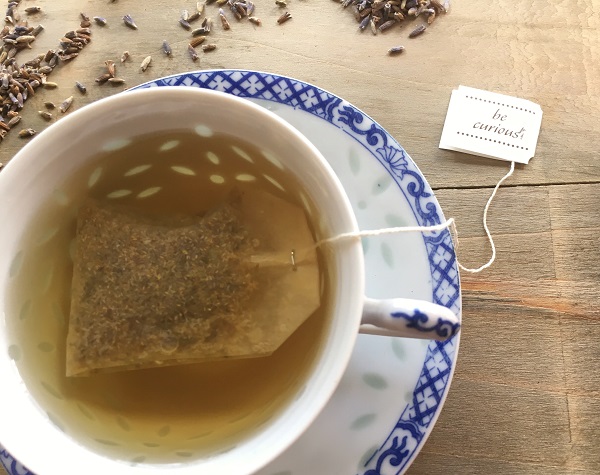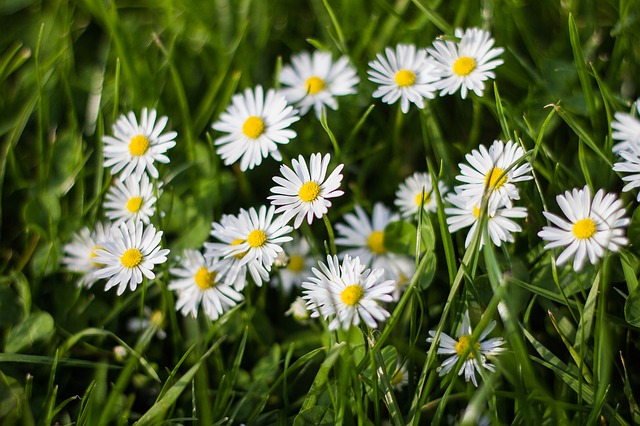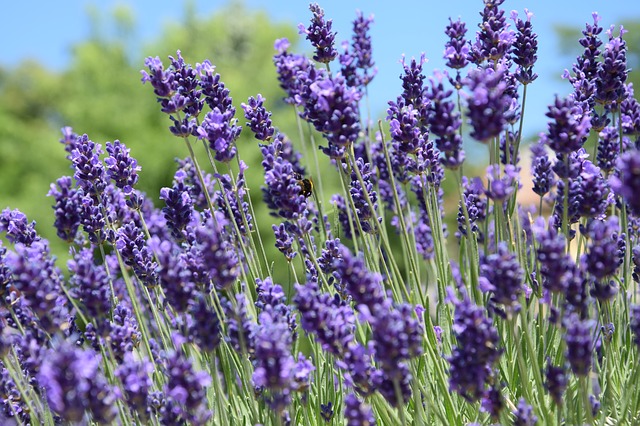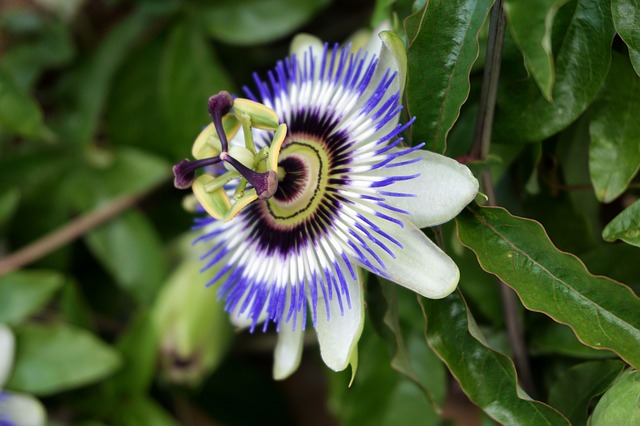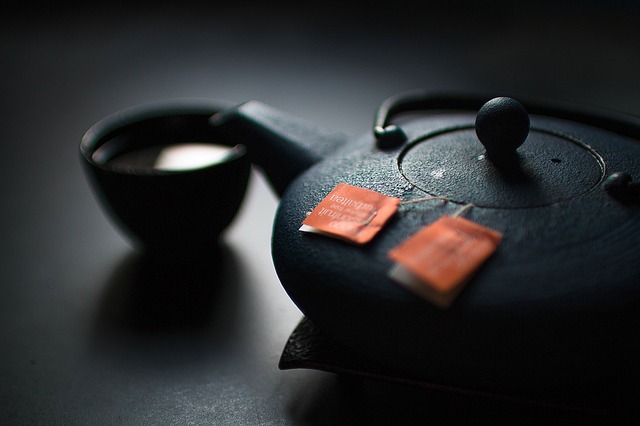Many of us struggle with getting enough good quality sleep. I have a 9 month old daughter, so I am well aware of the struggles and the consequences of not getting enough sleep.
Winding down from the day is one of the top reasons why it takes many of us so long to actually fall asleep. Starting a night time routine (like we do with our kids) is one way to help our minds slow down and prepare for sleep. Part of that night time routine can include a night time tea that contains ingredients that can help us relax and sleep better. You would want to consume this tea about 30-45 minutes before bedtime.
Herbs can be very powerful and helpful in many instances. Herbals teas are an easy way to help our bodies and minds relax and unwind from the day. The most common ingredients in many of these “sleepy time teas” are Chamomile, Lavender, Valerian Root, Passionflower and Kava.
Chamomile
Chamomile is easily one of the most popular and widely used herbs out there. It’s been used for thousands of years to help with many conditions like anxiety, insomnia and stomach problems. The flower heads are the part of the plant used for medicinal purposes. Some studies have shown that it can reduce symptoms of mild to moderate anxiety and help with sleep. Dosages vary greatly depending on the preparation.
While chamomile is very safe (at appropriate dosages) for most people, here are a few precautions to consider:
- Some people are allergic to chamomile. Those who are allergic to asters, daisies, chrysanthemums or ragweed, may also be allergic to chamomile.
- It may make asthma worse.
- It may have an “estrogen-like” action in the body, so be cautious if you have a history of cancers like breast or uterine cancer.
- Some studies have shown that it can increase the risk of miscarriage, so avoid if pregnant.
- It may also increase the risk of bleeding, so stop taking it a few weeks before any kind of surgery.
Lavender
Another very popular herb, lavender is known for its fragrance and calming effects. Studies have shown that just smelling lavender can help calm and sooth the mind. The essential oil or dried flowers are used for aromatherapy. Studies suggest that aromatherapy with lavender may slow the activity of the nervous system, improve sleep quality, promote relaxation and lift mood. Massage with lavender essential oils (diluted with a carrier oil) is another way to receive the benefits of lavender.
Check out Celeste Cooper-Peel's post about how to use lavender (and other essential oils) to help with sleep and relaxation.
A few precautions to consider with lavender:
- Some people are allergic to lavender.
- There is controversy around using lavender while pregnant. Speak with your provider.
Valerian Root
Valerian root has been used for thousands of years to help with anxiety and insomnia. It is thought to work by increasing levels of gamma aminobutyric acid or GABA which makes you feel more relaxed. Studies have shown that it may help you fall asleep faster and provide you with better quality sleep. Studies suggest that the benefits might take a few weeks to show up, although some reported better sleep immediately.
The root of the valerian plant is very stinky, so be prepared if it’s not combined with other herbs to help mask the smell.
A few precautions to consider with valerian root:
- Do not take if pregnant or breastfeeding.
- Some people have an opposite effect, feeling anxious and restless after taking it.
- Safety of long term use is not known.
- Some report side effects of headaches, stomach pain, depression and night terrors.
- Excessive use can cause liver damage.
Passionflower
Passionflower is another herb used to help with anxiety and insomnia symptoms. It is also believed to increase GABA, making you feel relaxed. It tends to be milder than valerian root or kava, but has been shown to help with mild anxiety and sleep. The flowers, leaves, and stems are the parts of the plant used for medicinal purposes.
It has been shown to be safe for most people when used on a short term basis (less than 2 months). However, do not take if pregnant or breastfeeding.
Kava
Kava has been used as a ceremonial drink in the Pacific Islands for thousands of years. It is said to elevate mood, well-being and contentment and produce a feeling of relaxation. Studies have found that it may be useful in the treatment of anxiety and insomnia. Kava is also thought to impact GABA and other neurotransmitter levels resulting in reduced anxiety, stress and improved mood.
The root of the plant is used medicinally.
A few precautions to consider with kava:
- Do not take if pregnant or breastfeeding.
- Do not take if you have any form of liver disease.
- Do not take if taking other drugs that can impact liver function (over the counter or prescription, talk to your provider!).
- Do not drink alcohol while taking kava.
- Do not take kava for more than 4 weeks. There is concern about liver toxicity with high doses or long-term use of kava.
Note About Drug Nutrient Interactions
Herbs can interact with other medications you might be taking. Since these herbs are all “relaxing”, use extreme caution if you take any sedatives, sleep medications, or anti-depressants. If you take any other kinds of medications there can also be interactions (blood pressure medications, diabetes medications, hormonal therapies, statins, blood thinners, pain medications). Make sure to review this with your provider before taking any herbs, and ALWAYS tell your medical provider about any herbs or other supplements you might be taking.
Herbal Teas
Tea is one of the most ancient forms of medicine and can be very comforting and soothing to drink. Packaged teas make it easy to brew an herbal remedy for just about anything. Boxed herbal teas generally contain about a teaspoon of herbs per bag. Traditional Medicinals is the most common organic medicinal herbal tea company you will find. There are other brands out there depending on where you are looking; just remember to make sure it’s organic.
How to make the perfect cup of herbal tea
Making a medicinal tea is a little different than brewing green or black tea. To properly prepare an herbal tea:
- Bring fresh spring or filtered water to a boil.
- Place the tea bag into a teacup or mug and add hot water.
- Cover with a saucer or small plate to prevent the plants’ volatile essential oils from escaping, and steep for 10 – 20 minutes.
Of course you can make your own herbal preparations that are likely stronger than the bags you purchase at the store. Make sure to purchase herbs from a reputable company; herbs can be contaminated with pesticides, lead and other compounds that you don’t want in your body! My favorite on-line resource is Mountain Rose Herbs.
If you are using leaves and flowers:
- 2 tablespoons of dried herbs
- 8 oz water
- Place herbs in a glass, stainless steel or porcelain container. Bring water to a boil, pour over herbs, cover and steep for 15 minutes. Strain out the herbs and enjoy. A French press works really well!
If you are using a tougher part of the plant, like the bark or roots:
- 2 tablespoons of dried herbs
- 10 oz water
- Bring water to a boil in a stainless steel pot, add herbs and soak, covered for 15 minutes. Then bring the mixture to a boil, cover, turn the heat to low and simmer for 20 minutes. Remove from the heat and steep an additional 10 minutes. Strain out the herbs.
If you are combining leaves, flowers, bark and/or roots:
- Follow the directions for the roots, then after removing the pot from the heat, add the leaves or flowers and steep for 10 more minutes.
Night Time Tea Tips
- Remember that we are all very different and we can react differently to herbs: some might even feel energized by valerian, while others might conk out after a watery cup of chamomile.
- More is NOT always better! The appropriate dose of herbs can depend on many factors, such as age, health and overall condition.
- Some herbs may take a few weeks before you start to see benefits.
- Drink your night time tea about 30-45 minutes before bedtime.
- The act of slowing down and the ritual of preparing the tea and drinking the tea itself will help you unwind, relax and sleep better. Sweet dreams!
“Drink your tea slowly and reverently, as if it is the axis on which the world earth revolves – slowly, evenly, without rushing toward the future.”-Thich Nhat Hanh
Click here for a printer-friendly version of this blog post.
